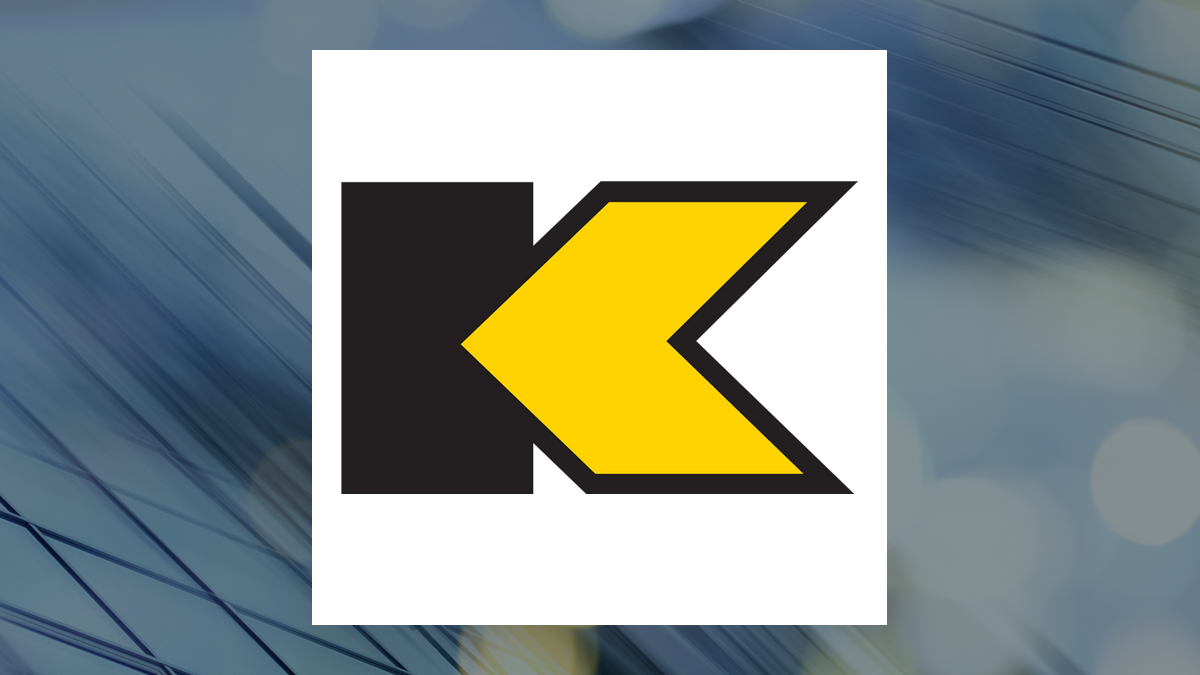Stanley Black & Decker (NYSE:SWK – Get Free Report) and Kennametal (NYSE:KMT – Get Free Report) are both industrials companies, but which is the better stock? We will contrast the two businesses based on the strength of their earnings, profitability, risk, analyst recommendations, valuation, institutional ownership and dividends.
Earnings and Valuation
This table compares Stanley Black & Decker and Kennametal”s revenue, earnings per share and valuation.
| Gross Revenue | Price/Sales Ratio | Net Income | Earnings Per Share | Price/Earnings Ratio | |
| Stanley Black & Decker | $15.37 billion | 0.76 | $286.30 million | $3.15 | 23.95 |
| Kennametal | $1.97 billion | 0.85 | $93.12 million | $1.20 | 18.24 |
Profitability
This table compares Stanley Black & Decker and Kennametal’s net margins, return on equity and return on assets.
| Net Margins | Return on Equity | Return on Assets | |
| Stanley Black & Decker | 3.15% | 7.76% | 3.08% |
| Kennametal | 4.73% | 8.09% | 4.19% |
Volatility and Risk
Stanley Black & Decker has a beta of 1.19, meaning that its share price is 19% more volatile than the S&P 500. Comparatively, Kennametal has a beta of 1.46, meaning that its share price is 46% more volatile than the S&P 500.
Analyst Ratings
This is a summary of current ratings for Stanley Black & Decker and Kennametal, as reported by MarketBeat.com.
| Sell Ratings | Hold Ratings | Buy Ratings | Strong Buy Ratings | Rating Score | |
| Stanley Black & Decker | 1 | 6 | 5 | 0 | 2.33 |
| Kennametal | 3 | 6 | 0 | 0 | 1.67 |
Stanley Black & Decker presently has a consensus price target of $89.40, indicating a potential upside of 18.52%. Kennametal has a consensus price target of $24.00, indicating a potential upside of 9.66%. Given Stanley Black & Decker’s stronger consensus rating and higher possible upside, analysts clearly believe Stanley Black & Decker is more favorable than Kennametal.
Institutional & Insider Ownership
87.8% of Stanley Black & Decker shares are held by institutional investors. 0.7% of Stanley Black & Decker shares are held by company insiders. Comparatively, 1.4% of Kennametal shares are held by company insiders. Strong institutional ownership is an indication that hedge funds, endowments and large money managers believe a stock will outperform the market over the long term.
Dividends
Stanley Black & Decker pays an annual dividend of $3.32 per share and has a dividend yield of 4.4%. Kennametal pays an annual dividend of $0.80 per share and has a dividend yield of 3.7%. Stanley Black & Decker pays out 105.4% of its earnings in the form of a dividend, suggesting it may not have sufficient earnings to cover its dividend payment in the future. Kennametal pays out 66.7% of its earnings in the form of a dividend. Stanley Black & Decker has increased its dividend for 58 consecutive years. Stanley Black & Decker is clearly the better dividend stock, given its higher yield and longer track record of dividend growth.
Summary
Stanley Black & Decker beats Kennametal on 10 of the 17 factors compared between the two stocks.
About Stanley Black & Decker
 Stanley Black & Decker, Inc. engages in the provision of power and hand tools, and related accessories, products, services and equipment for oil and gas, infrastructure applications, commercial electronic security and monitoring systems, healthcare solutions, and mechanical access solutions. It operates through the Tools and Outdoor and Industrial segments. The Tools and Outdoor segment refers to power tools, hand tools, accessories and storage, and outdoor power equipment product lines. The Industrial segment includes the engineered fastening and infrastructure businesses. The company was founded by Frederick T. Stanley in 1843 and is headquartered in New Britain, CT.
Stanley Black & Decker, Inc. engages in the provision of power and hand tools, and related accessories, products, services and equipment for oil and gas, infrastructure applications, commercial electronic security and monitoring systems, healthcare solutions, and mechanical access solutions. It operates through the Tools and Outdoor and Industrial segments. The Tools and Outdoor segment refers to power tools, hand tools, accessories and storage, and outdoor power equipment product lines. The Industrial segment includes the engineered fastening and infrastructure businesses. The company was founded by Frederick T. Stanley in 1843 and is headquartered in New Britain, CT.
About Kennametal
 Kennametal Inc. engages in development and application of tungsten carbides, ceramics, and super-hard materials and solutions for use in metal cutting and extreme wear applications to enable customers work against corrosion and high temperatures conditions worldwide. The company operates through two segments, Metal Cutting and Infrastructure. It offers standard and custom products, including turning, milling, hole making, tooling systems, and services, as well as specialized wear components and metallurgical powders for manufacturers engaged in various industries, such as the manufacturers of transportation vehicles and components, machine tools, and light and heavy machinery; airframe and aerospace components; and energy-related components for the oil and gas industry, as well as power generation. In addition, the company provides specified product design, selection, application, and support services; and standard and custom metal cutting solutions to aerospace, general engineering, energy, and transportation customers. Further, it produces compacts, nozzles, frac seats, and custom components used in oil and gas, and petrochemical industries; rod blanks and abrasive water jet nozzles for general industries; earth cutting tools and systems used in underground mining, trenching and foundation drilling, and road milling; tungsten carbide powders for the oil and gas, aerospace, and process industries; and ceramics used by the packaging industry for metallization of films and papers. The company provides its products under the Kennametal, WIDIA, WIDIA Hanita, and WIDIA GTD brands through its direct sales force; a network of independent and national distributors; integrated supplier channels; and through the Internet. The company was founded in 1938 and is based in Pittsburgh, Pennsylvania.
Kennametal Inc. engages in development and application of tungsten carbides, ceramics, and super-hard materials and solutions for use in metal cutting and extreme wear applications to enable customers work against corrosion and high temperatures conditions worldwide. The company operates through two segments, Metal Cutting and Infrastructure. It offers standard and custom products, including turning, milling, hole making, tooling systems, and services, as well as specialized wear components and metallurgical powders for manufacturers engaged in various industries, such as the manufacturers of transportation vehicles and components, machine tools, and light and heavy machinery; airframe and aerospace components; and energy-related components for the oil and gas industry, as well as power generation. In addition, the company provides specified product design, selection, application, and support services; and standard and custom metal cutting solutions to aerospace, general engineering, energy, and transportation customers. Further, it produces compacts, nozzles, frac seats, and custom components used in oil and gas, and petrochemical industries; rod blanks and abrasive water jet nozzles for general industries; earth cutting tools and systems used in underground mining, trenching and foundation drilling, and road milling; tungsten carbide powders for the oil and gas, aerospace, and process industries; and ceramics used by the packaging industry for metallization of films and papers. The company provides its products under the Kennametal, WIDIA, WIDIA Hanita, and WIDIA GTD brands through its direct sales force; a network of independent and national distributors; integrated supplier channels; and through the Internet. The company was founded in 1938 and is based in Pittsburgh, Pennsylvania.
Receive News & Ratings for Stanley Black & Decker Daily - Enter your email address below to receive a concise daily summary of the latest news and analysts' ratings for Stanley Black & Decker and related companies with MarketBeat.com's FREE daily email newsletter.
